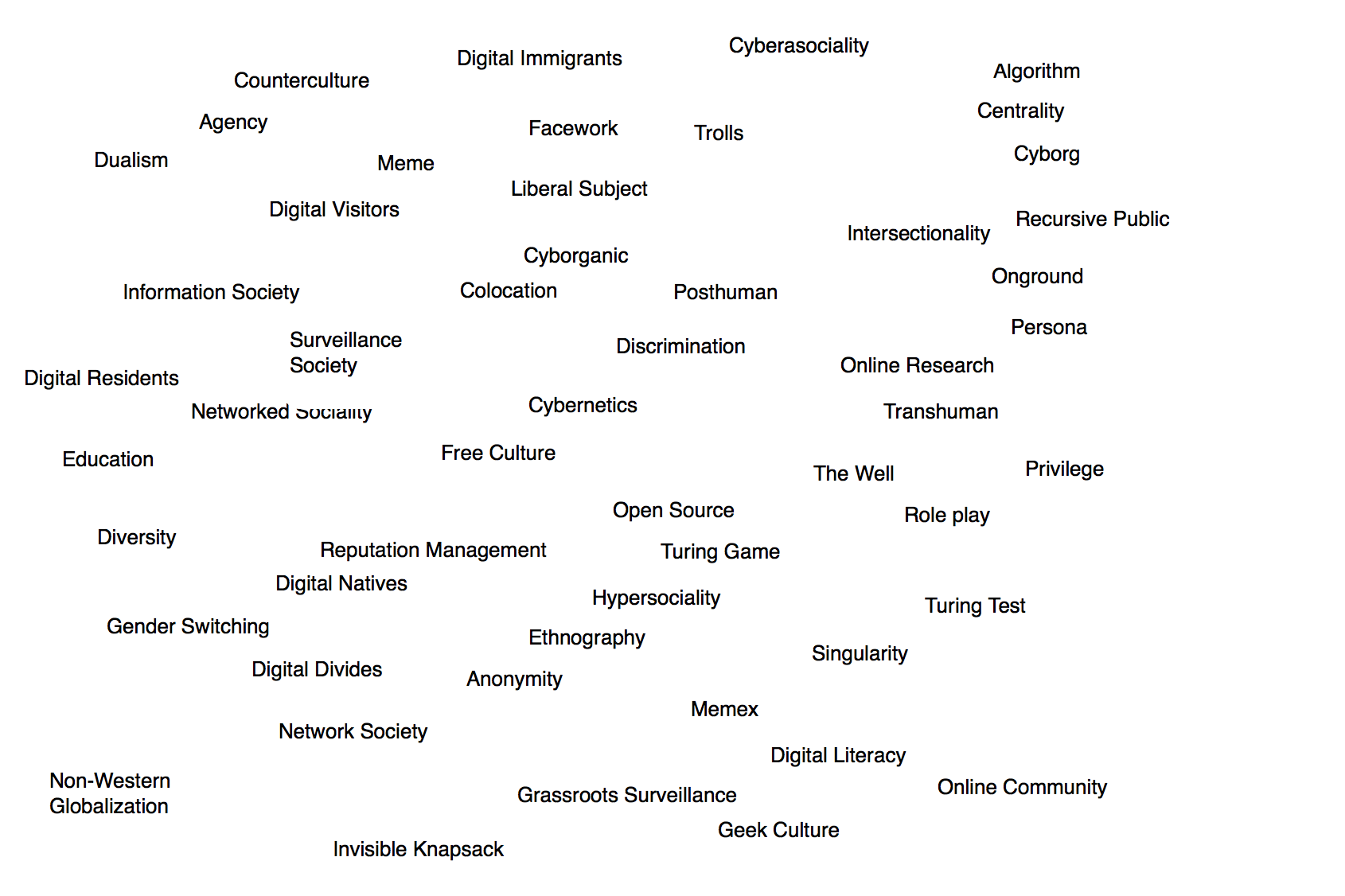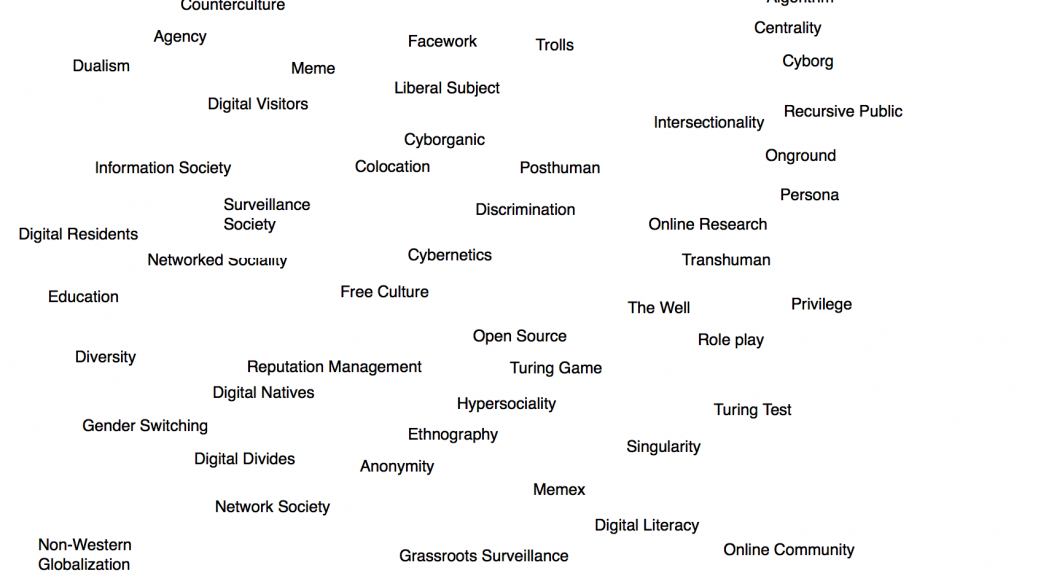In part because of this EdTechTeam badge (and because we’ve been working on badges), I’m encouraged to write something about my involvement in using “game principals” to motivate learners positively. This despite the fact that I’ve been quite critical (on the record, on more than one occasion) about gamification, especially in education. (In this context, “Serious Games” are a separate issue.)
So here’s what I did last night, which does relate to game mechanics, in some ways, and did sound like it was quite motivating…
Prepping for the final exam, students in Cyberspace Sociology course http://learn.enkerli.com/category/coursenotes–2/cyberspace-sociology/ had to create lists of threads and themes from the semester. Nothing gamified about this, though (as with every activity in this class) learners were posting their lists to a peer-rated forum.
Made a scattered map out of all of these items, to serve as a master list of sorts. As per my own policy, exam questions may only come from these items.

So… here’s the playful and game-like part: I allowed students to take off some items, but they had to team up and select only two items per team, for elimination.
After teams debated list items for a while, we went through all the teams and tallied the “votes” for those items which should be avoided on the exam. One item had the largest number of team votes, so I deleted it right away (after discussing it). Three items had the same number of team votes so we did a quick raised hand poll and noticed that one of the terms could stay (only a few hands went up to eliminate it). Chatting with the class, we eventually decided to eliminate both of the two remaining terms.
Here are the other terms which had at least one team vote:
- Cyberasociality
- Algorithm
- Centrality
- Cyborg
- Recursive Public
- Intersectionality
- Onground
How does this qualifying as using game mechanics, if individual students didn’t receive extrinsic motivators, individually? That’s where it becomes somewhat subtle. I did use a type of “Carrot & Stick” approach, in that they had to go through the classroom activity or get stuck with things they didn’t want to have on the exam. But the real effect of the activity is that students were discussing most of the items in the list, explaining things to one another. Sneakily getting students to do a bit of peer instruction isn’t something I’m ashamed of.
One effect of the activity was similar to gamification effects. Members of a team who had been the only one to vote for “centrality” to be eliminated were experiencing the small frustration of having “lost”. Given my empathy levels, it didn’t feel extremely good at first. But after a quick explanation of the concept, the teammates sounded relieved.
The major effect, in my observation, was that the atmosphere became remarkably playful. To me, playfulness in the classroom brings a lot to the rapport established between people involved. As with rapport, it has to do with mutual respect. And I really care about playful living.
To me, playfulness (open play) is the mirror image to gamification (game mechanics). I’d go as far as to say that gamification is “gaming without playfulness”.
After that very informal “team vote” activity, students had to discuss items which still weren’t clear, identifying some things which were obscure to everyone in their team. We then discussed those items with the whole class, getting people to provide explanations.
Something to note about that “team vote” activity is that in no way does it ensure appropriate representation of diverse voices. In other words, it wasn’t really meant to be “democratic”. But it did allow for diverse forms of participation. Some learners involved did a lot more peer-teaching than they had ever done during the semester. The extrinsic motivation (to show off, to get a good grade…) is already there, so I didn’t need to add much of an incentive.
The resulting list is the basis of a collaborative study guide, to which students are contributing in diverse ways. And it helps me prepare an exam which many might consider fair.


